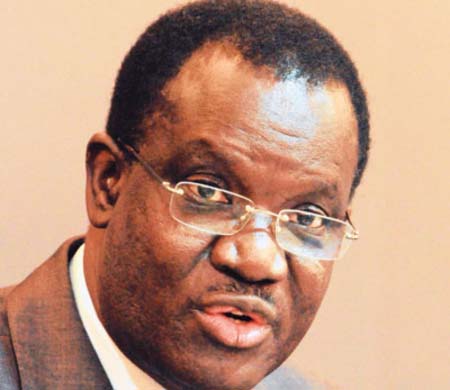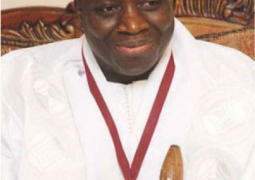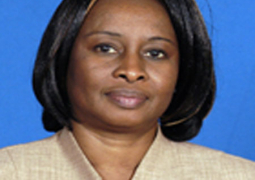
Countries in the West African Monetary Zone (WAMZ) have failed on several occasions to introduce the bloc’s monetary integration agenda, which is an integral part of the Roadmap of the ECOWAS Single Currency Programme.
The commencement date for a second monetary union has been postponed thrice in 2003, 2005 and 2009.
Many economic and political analysts have highlighted salient reasons for this snag in the effort of the zone to implement this laudable agenda, which has a lot of benefits for the people and citizens of West Africa.
Senior officials of the African Commission have also been hitting hard on economic and financial decision-makers of the zone, such as finance ministers, trade ministers, bank governors and other public sector economic players, to put proper economic and monetary policies in place in their various countries so as to speed up implementation and achievement of the monetary integration plan, which is seen as taking a snail’s pace inimical to the progress and development of the region.
Although on the economic front member States have been commended for their efforts at achieving impressive growth rate “which has made ECOWAS the fastest growing regional economic community in Africa” - with growth rates for 2013 and 2014 standing at 6.3 per cent and 7.1 per cent respectively - the twin issues of unemployment and poverty have however continued to remain a hindrance to improvement in the standard of living of the citizens of West Africa.
Commenting on this situation, ECOWAS Commission Ag-Director of Multilateral Surveillance Dr Nelson O. Magbagbeola said at the just concluded 36th Meeting of WAMZ in Banjul (10 - 17 January 2014), that: “The economies of the WAMZ countries are growing fast, some at double digit rate. However, this rapid growth is due to activities in the extractive industries which do not necessary have strong backward linkage to the national economy.
“As we know, extractive industries usually do not employ much labour and the non-resource sectors typically suffer contractions associated with Dutch disease syndrome (or resource trap) during boom periods.
“This may, therefore, call for analysis of constraints to broad-based growth with a particular emphasis on the non-resource sectors in the economy. Thus, for growth to be sustained in the long run, it should be broad-based across sectors.
“Issues of structural transformation for economic diversification should therefore continue to occupy the front burner in our development agenda.
“In addition, it should be inclusive of the large part of the country’s labour force, where inclusiveness refers to equality of opportunity in terms of access to markets, resources and unbiased regulatory environment for businesses and individuals.”
Talking about the real macroeconomic convergence criteria bedeviling the attainment of the monetary integration agenda, Dr Magbagbeola, who made this statement in league with ECOWAS Commission President Kadre Desire Ouedraogo and the Commissioner of Macroeconomic Policy, Dr Ibrahim Bocar Ba, says the ECOWAS Commission is concerned with the slow pace of attainment of monetary integration in the WAMZ.
“It is generally agreed that achievement of macroeconomic convergence criteria on a sustained basis for at least two consecutive years is a necessary condition for the establishment of a credible and sustainable monetary union. Achieving that has been a challenge for us,” he said.
“One key issue of concern is fiscal dominance. The primary criterion of budget deficit and the secondary criteria of tax revenue-GDP ratio and wage bill-tax revenue ratio are the most slippery criteria for many of our member States.
“ECOWAS Commission would continue to encourage all member States to enhance domestic resource mobilization, improve efficiency of the tax system to ensure that yield reaches and surpasses the ECOWAS threshold of 20 per cent, and rationalize expenditure towards poverty-reducing and development programmes.”
Qualitative or specific issues such as policy harmonization, public finance frameworks, tariff and non-tariff barriers, and integration of financial markets have continued to inhibit efforts at achieving a somehow unformed or smooth economic space to ensure the realization of the zone’s monetary integration plan.
Dr Nelson again: “Apart from the quantitative macroeconomic convergence criteria, timely resolution of the qualitative issues as contained in the Roadmap of the ECOWAS Single Currency Programme is also very important.
“The issues relate to activities including policy harmonization in areas such as statistics including policy framework and public finance frameworks as well as removal of all tariff and non-tariff barriers to free movement of persons and goods within ECOWAS and integration of the financial markets.
“It is only through a collective effort and strong resolve that we would be able to make a significant and sustained progress towards the realization of our integration objectives including creation of a single monetary union.”
According to Dr Nelson, the ECOWAS Commission is working “assiduously” to ensure the Roadmap activities under its watch are “effectively” implemented.
He says: “With respect to free movement of persons, the ECOWAS Council of Ministers during its 71st Ordinary Session held in Abidjan on 16 and 17 December 2013 adopted the following amendments to the ECOWAS protocol on free movement: removal of the resident’s identity card and the 90 day period, removal of the period of stay for private vehicles (90 days) and commercial vehicles (15 days), elimination of the Health card (vaccination or yellow card), and replacement of the ECOWAS travel certificate with the ECOWAS Biometric Identity Card.”
In light of these amendments, member States are urged to continue to ensure that the non-tariff barriers (NTBs) are reduced to the barest minimum by reducing and consolidating the checkpoints along the international transit corridors.
The ECOWAS Council also adopted the Directive on tax and customs transition programme which aims to mitigate the fiscal impact of the Economic Partnership Agreement.
The Commission however commended the West African Monetary Institute (WAMI) on the achievements recorded in the implementation of its activities including multilateral surveillance, trade and financial integration, and payments system development, especially for The Gambia, Guinea, Liberia and Sierra Leone.
Nevertheless, the WAMZ countries need to put in more efforts to ensure that the fundamentals for the establishment of the second monetary zone are achieved, to meet the overall goal of improving the quality of life of all ECOWAS citizens.
The date for its establishment has been postponed three times. Is it going to be postponed again in January 2015?
The answer to this question lies squarely on the decisions and policies of our political, economic and financial leaders of the Zone.



